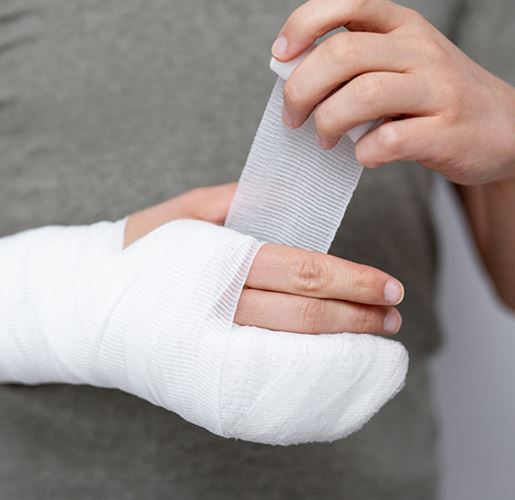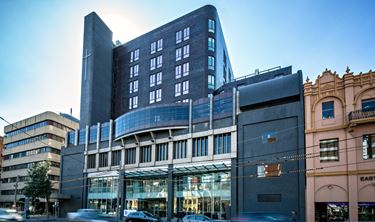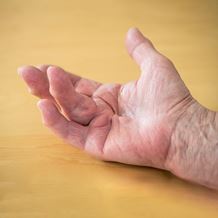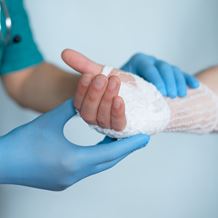Dislocated Finger
- Home
- Services
- Orthopaedics
- Hand Orthopaedics
- Common Hand Conditions
- Dislocated Finger
What is a dislocated finger?
A dislocated finger occurs when the finger is pulled out of alignment. The ligaments give way, and the finger no longer sits comfortably in the joint. This can happen after a nasty fall, a sudden accident or from a sports injury. It is considered a serious condition that is extremely painful, often making any finger movement difficult. If the dislocated finger is not treated properly it can result in deformity, joint stiffness, and poor function. The most common type of dislocation is when the finger hyperextends and dislocates towards the back of the hand, something which commonly occurs in sport. In more severe cases of finger dislocation, the bones around the joint may be fractured or the finger may have dislocated in a more unusual position. In extreme cases, the bones may have broken through the skin.
How is it treated?
It is not advisable to try and reposition the finger dislocation without medical attention, as this could permanently damage the surrounding structure including tendons and ligaments. Repositioning a dislocated finger is a procedure known as a reduction, and it involves carefully manipulating the finger back into the joint. It is commonly used for simple finger dislocations and is followed up by an X-Ray to ensure the joint has been replaced in the correct position. The finger is then immediately splinted or strapped to the neighbouring finger to help with healing. In more complex cases where the finger dislocation is accompanied by torn ligaments or fractured bones, a surgical procedure may be required to stabilise the joint and restore mobility. This is known as an open reduction.
How long does it last?
Finger dislocations usually heal within 4-6 weeks, but the recovery time will depend on the extent of the injury and the health of the patient. Finger movement can be regained fairly quickly with regular exercises, but it can take some months before the finger settles down completely. Buddy strapping your finger to a neighbouring finger is recommended during sport for extra protection during the first 12 weeks. In more severe cases of dislocated finger where surgery is required, the recovery time will be significantly longer and will depend on the extent of the procedure.

Other hand surgeries and procedures
Common hand conditions
Find a hospital with orthopaedic services
Our Hospitals
Related services

Dupuytren’s Contracture Surgery
A procedure to relieve tension in the hand tissue causing the fingers to bend inwards.
Read More
Other Hand Surgeries and Procedures
Procedures for hand conditions such as trigger finger & tendonitis surgery.
Read More
Find a Specialist
Talk to our world-leading orthopaedic specialists about the most suitable treatment options.
Read More